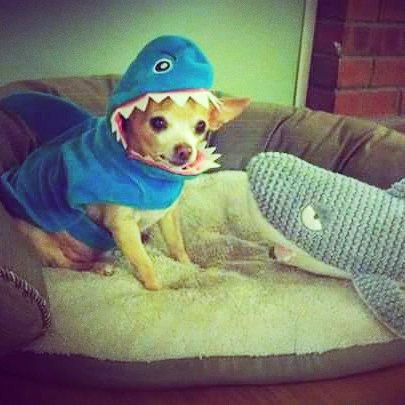DOG TRAINING AS A COMMUNICATION SYSTEM
- Allie Tellier, CCBS Executive Director

- Apr 5, 2023
- 3 min read
Dog training skills help to manage expectations so to reduce frustration between us and our dogs. As you and your dog learn a “structured communication system” using reward centered operant skills that include communicative gestures and words, it is a good reminder to know we (dogs and humans) learn in the same order BUT not at the same rate.
Dogs are a "nonverbal” species and unlike people they do not use verbal language to communicate. You are probably thinking you know this but we often forget this important fact. And because we overlook this, we often find ourselves struggling as we think our dogs understands what we want from them. As a reminder your dog responds to the “tone” in your voice not so much the words (unless you’ve been working on specific words). And so, when you find ourself saying NOOOOOOO - in a low tone it sounds like a growl and causes your dog distress. Saying “no” really serves no purpose. It means nothing and only serves to cause you frustration. Check in and ask yourself in a given day are you using the word “no” too much? Dogs communicate with us (and other dogs/other species) through chemical exchange (smelling how we feel from the pheromones you release), physically approaching and avoiding (their direction lets us know if they approve or are nervous) and body posturing including micro facial expressions (subtle changes in eyes, eyebrows, muzzle, head, tail carriage, body carriage)
Bear in mind a dog’s life stages moves (develops) faster than humans. They possess the same 12 systems as we and are constantly aging. Below are a dogs life stages based on age:
0-12 weeks Puppy sensitive period to acclimate to the world they will live.
8-24 weeks (6 mo) puppyhood
6 mo- 18/22 mo: Adolescent
24 months (2 years), Adult
7 years, Senior
12+ year, Geriatric (depending on the breed)
The learning curve is steep for both us and our dogs and keeping this in mind will help manage expectations as we establish new lifestyle changes. The Hebbian theory or Hebbs Rule has been repeated by many neuropsychologists and neuroscientists. The theory was first introduced by Donald Hebb in his 1949 book The Organization of Behavior. The theory postulates “neurons that fire together, wire together”. The idea is neurons responding to the same stimulus connect “preferentially” forming strong synaptic connections and rapid memory recall. The Learning Process takes time for both people and dogs and while people may think their dog “knows” a skill, they need to continue working on practicing. The four stages of learning include acquisition, fluency, maintenance and generalization. Read more about the four stages of learning below.
If you are working on training skills with your dog, can you identify what stage you’re in with your dog? As you work on communication skills with your dog moving through acquisition, fluency/proficiency, maintenance and generalizing behaviors know learning is not a straight line. There will be regressions, and this is okay. Regressions are important as they help us learn where we made mistakes and need to improve. You and they will make mistakes and have setbacks (regressions) and this is completely normal and OK! Just go with it but learn from it. As always, I love questions so please call, text or email me!
The Four Stages of Learning
1. Acquisition – goal is accuracy of response including timing
The student is beginning to learn a new skill or concept.
Requires lots of opportunity to practice (correctly) which is why I ask you to practice 3x a day max 5 minutes for 3-5 days or until you are feeling comfortable using training whenever engaging with the pup.
We build in distractions always going back to basic if too difficult.
2. Fluency/Proficiency- goal is gathering information more quickly
The student has learned most of the skill but has not mastered it.
Recognizing errors and improving upon
Faster rates of accurate responses and more fluid
3. Maintenance – goal is retention of the knowledge, skill, or behavior.
Continued practice particularly if they had difficulty mastering the skill in the first place.
Both accuracy and proficiency remain at high levels.
4. Generalization – goal of is implementation of the skill or behavior across settings, individuals, and/or time
Vivian Zottola, MSc, CBCC
CCBS Research Associate Applied Anthrozoologist | Human-Canine Relationship Specialist Fear Free Certified Animal Trainer BostonK9Concierge LLC ClickTherapyForDogs.com | 617-721-8025 H-A Click Therapy for Dogs 90 Day Course




Скачайте последнюю версию нулс бравл скачать и играйте на приватном сервере Brawl Stars с неограниченными кристаллами, монетами и ящиками. Откройте всех бойцов, устраивайте собственные матчи и наслаждайтесь эксклюзивными функциями вместе с друзьями бесплатно.
Awesome post! I’ve recently come across a fun browser game called Ragdoll Hit that fans of physics-based action games might really enjoy. It’s a simple yet addictive game where ragdoll characters brawl in chaotic battles — the unpredictable physics make every round totally unique and entertaining.
If you’re into quick, no-download games, definitely give it a try here: https://ragdoll-hit.io/
It’s free to play and runs right in your browser. Perfect for when you need a break but still want something fun and fast-paced.
Download Geometry Dash APK 2.2 for free and enjoy the full version with no ads, unlimited diamonds, unlocked editor levels, offline gameplay, and all the action-packed jumping, flying, and obstacle-smashing fun you love.
Most versions can be installed without rooting. You just need to enable vidmate mod apk latest version device settings.
Skip command-line tools—use Rufus for point-and-click flashing.